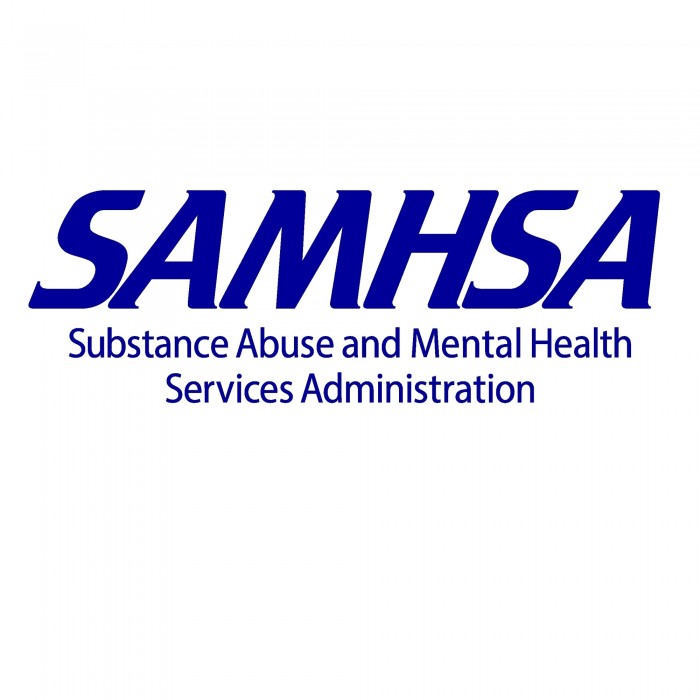DDAP today issued a new licensing alert and information bulletin, both pertaining to emergency contact notifications. Licensing Alert 02-21 outlines requirements that inpatient drug and alcohol treatment facilities must follow per Act 41 of 2021 regarding notification of emergency contacts when patients leave treatment against medical advice. Information Bulletin 03-21 outlines requirements that recovery houses must follow per Act 35 of 2021 regarding notification of emergency contacts when residents self-discharge from or leave and fail to return when expected to the house.
DDAP
DDAP Issues Report on PA’s Confidentiality Regulations, Makes Recommendations for Changes
The Pennsylvania Department of Drug and Alcohol Programs (DDAP) today announced findings from a new report highlighting the need to update existing client record policies to address barriers for individuals seeking substance use disorder (SUD) treatment and better integrate the drug and alcohol treatment system with other healthcare services.
The recommendations outlined in this report suggest a shift in Pennsylvania’s approach to confidentiality of SUD records. DDAP plans to work with the legislature to implement the following three recommendations:
- Align Pennsylvania SUD confidentiality regulations with federal regulatory language contained in 42 CFR Part 2;
- Develop resources, including informed consent trainings, on client privacy rights to ensure that all individuals who enter SUD treatment in Pennsylvania are informed of their rights over their own records; and
- Create an ombudsman or advocate position at the state level to empower individuals to report grievances if they think their data has been misused or if they feel their SUD status has resulted in discrimination.
Throughout 2020, DDAP conducted a stakeholder survey in partnership with Vital Strategies for feedback on statutes and regulations that control the management of SUD records in Pennsylvania. The new report and findings offer potential pathways for updating Pennsylvania’s SUD confidentiality policies to meet the needs of an evolving SUD service landscape that is becoming increasingly more integrated and collaborative.
Read the full press release.
DDAP and DHS Sued Over ASAM Transition
The Drug & Alcohol Service Providers Organization of Pennsylvania (DASPOP) has sued the Department of Drug and Alcohol Programs (DDAP) and the Department of Human Services (DHS) in the Commonwealth Court of Pennsylvania, calling DDAP’s and DHS’s transition to ASAM from the Pennsylvania Client Placement Criteria (PCPC) unlawful and unconstitutional. DASPOP is seeking injunctive relief that prevents DDAP and DHS from enforcing or moving forward with the ASAM alignment and other aspects of the ASAM transition until the formal regulatory review process required by Pennsylvania law has been completed.
Further, the lawsuit asks the court to declare that DHS, as administrator of Pennsylvania’s Medical Assistance program, is required to use PCPC in making addiction treatment placement, continued stay, and discharge decisions, and to prohibit DHS from using or requiring the use of ASAM Criteria 3rd Edition.
DDAP Collecting National Recovery Month Events
September is National Recovery Month. The Pennsylvania Department of Drug and Alcohol Programs (DDAP) is gathering a list of statewide events to promote on its 2021 National Recovery Month web page. If you would like your evens to be listed, please email the DDAP Press Office.
DDAP Issues Bulletin on Updated SAMHSA Term and Condition for Marijuana
The Pennsylvania Department of Drug and Alcohol Programs has issued an Information Bulletin providing updates on the Substance Abuse and Mental Health Services Administration’s (SAMHSA) term and condition for marijuana.
IRRC Disapproves DDAP’s Recovery House Regulations
In its July 15 public meeting, the Independent Regulatory Review Commission (IRRC) disapproved the Department of Drug and Alcohol Programs’ recovery house regulations for licensure in a 4-1 vote. Earlier in the week, the Office of Attorney General and House and Senate committees approved the regulations.
DDAP intends to revise the regulations to respond to IRRC’s concerns and resubmit the regulatory package as soon as possible. The latest draft of the regulations are available on IRRC’s website.
2021 Problem Gambling Awareness Month Kickoff Recording Now Available

On Monday, March 1, Department of Drug and Alcohol Programs Secretary Jen Smith was joined virtually by the Pennsylvania Lottery, the Pennsylvania Gaming Control Board, and the Council on Compulsive Gambling of Pennsylvania to kick off March as National Problem Gambling Awareness Month. The recording is available here (password: 8xJTCw3p).
DDAP Releases February Vaccine Update
Rite Aid Pharmacy Partnership with Residential Drug and Alcohol Treatment Providers
The Pennsylvania Departments of Human Services, Health, and Drug and Alcohol Programs have established a partnership with Rite Aid to ensure providers of congregate care settings throughout the commonwealth have access to the COVID-19 vaccine. The partnership is a result of a survey sent to DDAP residential treatment providers on January 26, 2021, to better understand how many providers were still in need of establishing a partnership with a vaccine provider in Pennsylvania.
If you are a residential treatment provider still in need of establishing a partnership, please let us know by contacting DDAP’s Dan Miller. If your facility meets the qualifications to participate in this partnership, we will connect you with a Rite Aid location who can come to your residential facility to vaccinate your residents and staff. To identify a vaccine provider in your local area, visit this web page.
Your Turn Eligibility Tool
If you or your staff are unsure if you qualify to receive a COVID-19 vaccine during phase 1a of Pennsylvania’s vaccine distribution plan, the Wolf Administration recently released the Your Turn tool to identify eligibility and provide notifications when you, or a loved one, are eligible for vaccinations.
Vaccine Supply Remains Limited
It is important to note that the vaccine supply is still very limited throughout the commonwealth and we ask for your patience as more vaccine becomes available. For the most up-to-date information on the COVID-19 vaccine and Pennsylvania’s vaccine distribution plan, visit the Department of Health’s website.
DDAP Shares SAMHSA’s New Series of Advisories on Substance Use Disorder Treatment
Today, the Department of Drug and Alcohol Programs (DDAP) shared information with providers informing them that the Substance Abuse and Mental Health Services Administration (SAMHSA) has published a series of advisories based on existing Treatment Improvement Protocols (TIPs) and Technical Assistance Publications (TAPs). These advisories summarize updated guidance and recommendations on topics in the substance use disorder (SUD) treatment field. The new advisories include:
Advisory: Comprehensive Case Management for Substance Use Disorder Treatment
Published: January 2021
This advisory is based on TIP 27: Comprehensive Case Management for Substance Abuse Treatment. It surveys the underlying principles and models of case management, discusses reasons SUD treatment providers might consider implementing or expanding the use of case management, and lists some case management resources and tools.
Advisory: Using Motivational Interviewing in Substance Use Disorder Treatment
Published: January 2021
This advisory is based on TIP 35: Enhancing Motivation for Change in Substance Use Disorder Treatment. It addresses the spirit, application, and fundamentals of motivational interviewing (MI), discusses how practitioners can effectively employ MI in SUD treatment, and provides tools that practitioners can use to encourage and promote lasting positive outcomes for their clients.
Advisory: Screening and Treatment of Viral Hepatitis in People with Substance Use Disorders
Published: January 2021
This advisory is based on TIP 53: Addressing Viral Hepatitis in People with Substance Use Disorders. It offers guidance to providers and administrators in SUD treatment programs on screening for and treating clients with Hepatitis A, Hepatitis B, and Hepatitis C infections.
Advisory: Screening and Treatment of Substance Use Disorders Among Adolescents
Published: January 2021
This advisory is based on TIP 31: Screening and Assessing Adolescents for Substance Use Disorders and TIP 32: Treatment of Adolescents with Substance Use Disorders. It includes recommendations for engaging adolescents in SUD risk assessment, screening, and treatment.
Advisory: Addressing Suicidal Thoughts and Behaviors in Substance Use Treatment
Published: January 2021
This advisory is based on TIP 50: Addressing Suicidal Thoughts and Behaviors in Substance Abuse Treatment. It provides strategies for identifying and addressing suicidal thoughts and behaviors in individuals with SUDs.
Advisory: Treating Substance Use Disorders Among People with HIV
Published: January 2021
This advisory is based on TIP 37: Substance Abuse Treatment for Persons with HIV/AIDS. It highlights strategies and considerations for SUD treatment providers to effectively engage people with HIV in SUD treatment.
Advisory: Group Therapy in Substance Use Treatment
Published: January 2021
Based on TIP 41: Substance Abuse Treatment Group Therapy, this advisory provides an overview of goals, processes, group-specific approaches, resources, and common elements that support favorable outcomes in group therapy.
Advisory: Prescribing Pharmacotherapies for Patients with Alcohol Use Disorder
Published: January 2021
This advisory, based on TIP 49: Incorporating Alcohol Pharmacotherapies into Medical Practice, focuses on medication and related treatment decisions made after screening and assessment for alcohol use disorder (AUD) and medically supervised withdrawal if necessary. Alcohol consumption should not stop abruptly in those patients who have consumed alcohol regularly over a prolonged period of time. This advisory is meant as an overview of AUD medications to facilitate abstinence.
Advisory: The Importance of Family Therapy in Substance Use Disorder Treatment
Published: January 2021
This advisory is based on TIP 39: Substance Use Disorder Treatment and Family Therapy. It surveys basic factors for programs and providers to consider when implementing family-related therapy approaches, goals, and processes for conducting effective family counseling and resources for further learning about family therapy techniques and models.
Advisory: The Substance Use Disorder Counseling Competency Framework – An Overview
Published: January 2021
This advisory is based on TAP 21: Addiction Counseling Competencies: The Knowledge, Skills, and Attitudes of Professional Practice. It discusses the development of the counseling competencies and the validated research on which they are based, provides a simplified overview of their structure and the elements of a typical competency, and outlines how these competencies are changing the field of SUD treatment nationwide. The advisory also addresses the critical role of cultural competence.
Advisory: Integrating Vocational Services into Substance Use Disorder Treatment
Published: January 2021
This advisory, based on TIP 38: Integrating Substance Abuse Treatment and Vocational Services, presents strategies and resources for SUD treatment counselors and program directors to improve outcomes for clients in recovery by helping them find and keep employment and deal with workplace stresses. This advisory is directed to programs serving clients who are unemployed, underemployed, or struggling in workplace settings.
DDAP Announces 2021/2022 Inpatient XYZ Package Training
The Department of Drug and Alcohol Programs (DDAP) will be holding a training for inpatient drug and alcohol providers on completing the XYZ package, including the changes that have been made to the current package. The training will take place next Thursday, January 28, 2021 from 2:30 pm – 3:30 pm. Below is the link to the Skype meeting where the training will occur. If providers (or applicable staff) cannot attend due to scheduling conflicts or maximum capacity issues with the training, there is no need to worry. The training will be recorded and available on demand on the DDAP website afterwards.
Additionally, the fiscal year (FY) 2021/2022 XYZ package was released yesterday and is currently available for download from the Pennsylvania Association of County Drug and Alcohol Administrators (PACDAA) website. Providers attending the training may want to download a copy of the package and review it or have it available to reference during the training.
If you would please forward this notice to any of your members who are inpatient providers, it would be greatly appreciated.
Thanks in advance, and as always, if you should have any questions, please do not hesitate to reach out.
Are you having trouble joining? Try Skype Web App
Join By Phone:
Toll number: +1 267-332-8737,,269283738# (Dial-in Number) English (United States)
Conference ID: 269283738
















